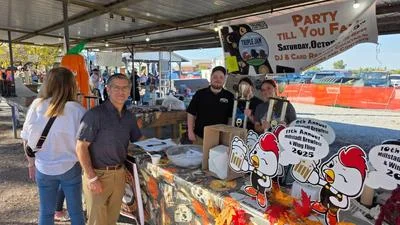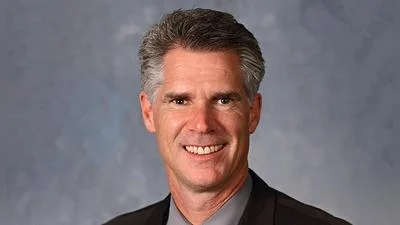Mechelle Childers, City Clerk | City of Waterloo
Mechelle Childers, City Clerk | City of Waterloo
City of Waterloo Ordinance Committee met July 21.
Here are the minutes provided by the committee:
Attendance: Chairman Kyle Buettner
Committee Members: Jim Hopkins, Jim Trantham, Jordan Riley, and Gary Most. Attendees: Mayor Stan Darter, Tina Charron, Joel Vogt, Matt Buettner, Sarah Deutch, Mechelle Childers, Nathan Krebel, J.R. Landeck, Sarah Craig, Dane Luke, Trin Daws, Jason Jones, and several officers from the Waterloo Police Department.
Meeting called to order at 6:30 PM.
Agenda Item 1: Petitions by Citizens on Non-Agenda Items: None
Agenda Item 2: Rogers Street Access Control Ordinance.
The Rogers Street Access Control Ordinance was discussed at the last Utility Meeting, and it was determined that obtaining an official recommendation from this Committee would be beneficial. Chairman Kyle Buettner asked if there was anything further to discuss on the subject and, if not, requested a motion to accept the ordinance as presented.
A motion was made by Alderman Riley and seconded by Alderman Most to recommend approval of the Rogers Street Access Control Ordinance as presented to the City Council.
Motion passed unanimously.
Agenda Item 3: Grocery Tax Ordinance.
This topic has been discussed multiple times in the past, and other municipalities in the area have already enacted similar ordinances. A document was provided outlining the potential revenue, the anticipated impacts, and the benefits for the City of Waterloo. It was also noted that a significant portion of the revenue would be generated by individuals who do not reside in Waterloo. This is not a new tax. Previously, the tax was collected by the State of Illinois and then returned to us. This ordinance simply enacts the process locally in order to do the same thing. Chairman Kyle Buettner stated that this is a revenue stream that helps fund improvements to streets, curbs, and sidewalks. Alderman Most noted that the ordinance states, “municipalities may impose a tax.” The State has indicated it will no longer collect this tax, so if a community wishes to continue it, an ordinance must be passed locally. Alderman Most added that the State had to pass a law allowing municipalities of our size to implement a tax of this nature. He expressed the belief that there are other ways to save money within the City to achieve the same goals and objectives without implementing this tax. Discussion continued, noting that the tax is already in place and being paid, so its continuation should go largely unnoticed. At 1%, the tax represents only a small fraction and is unlikely to cause financial hardship. It was also noted that the City works to keep utility rates low, helping residents manage financial challenges. Other aldermen expressed concern that keeping the tax could be a slippery slope, stating that the City should not be a taxing body or impose additional taxes. They questioned what might happen if the State were to cut another funding source and apply the same approach with a different tax, such as a sales tax or motor fuel tax. It was also noted that gambling revenues are too volatile to be a reliable funding source. It was mentioned that the tax can be reviewed and revised every six months. However, some aldermen expressed concern that the City was putting itself at risk by effectively reinstating a tax that had previously been removed. Next year, the City can review this matter again by examining the revenue numbers, assessing the budget, considering an increase to the property tax levy, adjusting utility rates, evaluating gaming proceeds, and identifying other potential funding sources. Alderman Vogt pointed out that the tax can be adjusted or re-enacted by April 1st and on a continuing basis thereafter. He further explained that the legislation also allows for the implementation of a grocery tax of up to 1%, in quarter percent increments. The rate could be reduced to 0.25%, 0.5%, or other quarter-percent levels. Additionally, there is a sales tax component, meaning the City could choose to eliminate the grocery tax entirely and instead implement a sales tax.
A motion was made by Alderman Hopkins and seconded by Alderman Kyle Buettner to recommend approval of the Grocery Tax Ordinance as presented to the City Council. The Committee Members voted as follows:
AYE –Hopkins and Kyle Buettner.
NAY – Trantham, Riley, and Most.
Motion failed by a vote of 2 AYE and 3 NAY.
Agenda Item 4: Comments. None.
The motion to adjourn the meeting was made by Alderman Most and seconded by Alderman Riley. Motion passed by a unanimous voice vote.
The meeting was adjourned at 6:58 PM.
https://www.waterloo.il.us/wp-content/uploads/Ordinance-Cmte-Mtg-Minutes-07-21-25.pdf




 Alerts Sign-up
Alerts Sign-up